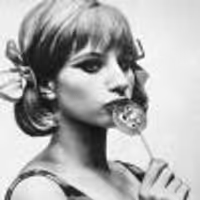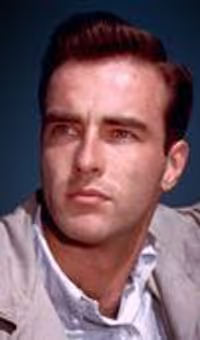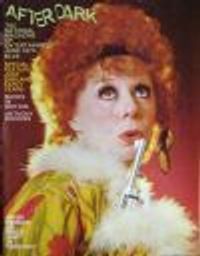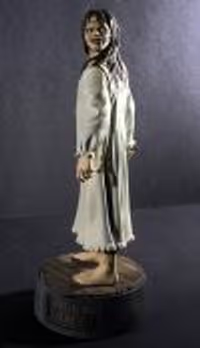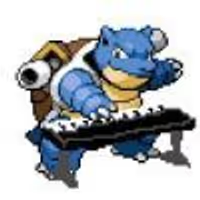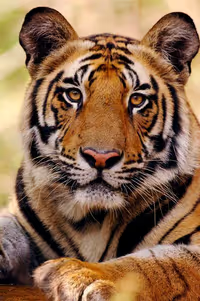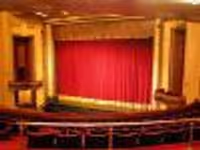The song "Mame"
#1The song "Mame"
Posted: 1/12/14 at 5:23pmI was having a conversation with someone about this song, and we both thought the words were slightly racist. I mean "making cotton easy to pick", reviving the South, "the plantation is hummin'" Dixie... I don't know. What do you think?
#5The song
Posted: 1/12/14 at 5:45pm
MAME is rarely done by an all-black chorus, nor is all cotton (now or ever) picked by African Americans. (I'm not defending slavery or other Jim Crow laws here, just stating the fact that most Southerners were not slave owners--which is not to say they didn't fight to defend a racist system.) Nowadays, I would expect any production of MAME to be cast multiracially.
In Mame's (note lower case; I'm talking about the character now) era, the South was mired deep in poverty. Rising again could mean things as common as paved roads and universal power and running water.
I think it's just a comic turn of phrase.
But I do see your point. The song seems to suggest overt elements of minstrelsy that remained common in American culture up through the 1970s. (In the broadest sense, of course, all American theater even today descends from minstrel shows.)
It doesn't reach my threshold of "shows that can never be done again", but perhaps you disagree.
#6The song
Posted: 1/12/14 at 5:51pm
StageStruckLad, I'm sure Jerry Herman was not trying to make any political statement about the South, new or old. He was just playing with Southern stereotypes for comedic purposes.
Variety shows were still doing "minstrel show" segments as late as the 1970s, though I think they'd dropped the actual blackface by then. I admit it's pretty shocking to recall what Sonny and Cher felt comfortable doing in my youth.
Updated On: 1/12/14 at 05:51 PM
#9The song
Posted: 1/12/14 at 5:56pmWhy would a tribute to Carl Channing include a song from Mame?
"In Oz, the verb is douchifizzation." PRS
#11The song
Posted: 1/12/14 at 6:10pm
Keep on looking at theatre and cinema history. But look deeper than you're looking now.
A lot of things from before your time will seem racist now that didn't seem racist to the people who first performed them.
Understanding what it meant then and what it means now will make you a better person and this a better world.
#12The song
Posted: 1/12/14 at 6:10pm
In fact, Angela Lansbury in that number was one of the most electric moments I've ever seen on a stage.
The entire dancing ensemble formed a diagonal from USL to DSR and as Angela promenaded before them, each cast member dropped to one knee in salute while the entire ensemble sang another chorus of the song.
It was like a coronation! Simple but chillingly effective. (And this being a Jerry Herman show, the same sequence was repeated for Angela's curtain call.)
(PJ's link below shows the diagonal going from USR to DSL. I probably reversed it in my mind.)
Updated On: 1/13/14 at 06:10 PM
#14The song
Posted: 1/12/14 at 7:09pmI'm missing the racism. Picking cotton is hard labor, that's all I hear. Anything else comes from the listeners mind.
"In Oz, the verb is douchifizzation." PRS
#15The song
Posted: 1/12/14 at 7:25pm
I mostly agree, doodle, and I think that's all the lyric intends: Mame is so delightful, her presence makes the workload seem lighter.
But see the Leonard Cohen lyric:
"Old Black Joe's still pickin' cotton
For your ribbons and bows.
Everybody knows."
There is a history of associating slavery and cotton (though of course slaves worked tobacco in Virginia, peanuts in Georgia, etc.), so the OP's association isn't mere imagination.
Updated On: 1/12/14 at 07:25 PM
#16The song
Posted: 1/12/14 at 8:12pmAs a musical, "Mame" is a delight, but the novel, "Auntie Mame," is superior in that it makes Mame not just a dotty old aunt who is a sort of elder Manic Pixie Dream Girl, but a genuine, albeit charming, danger to herself and to Patrick. In the musical she is a very life-affirming presence, but in the novel you get the sense that she is more of a life-destroying one- but one so likable that people put up with it, and with her.
#17The song
Posted: 1/12/14 at 8:21pm
^^^I wonder, darquegk, if that is because the novel was published in 1955, when non-conformity was still viewed with suspicion. The 1966 musical is very much of the "Do Your Own Thing" era.
(Full disclosure: I loved the novel, but haven't read it for nearly 50 years. I trust your assessment of it.)
#18The song
Posted: 1/12/14 at 8:49pm
I sense that it may have been that Mame in the novel was the sort of character one would expect to see in mainstream entertainment NOW, not then. Much like Holly Golightley, she was turned into something eccentric but ultimately wholesome for public consumption, when the original literary one was... well, less so.
"Fish families" is a punch line in the musical, while in the novel it is essentially a school run by two people who are definitely described as perverts and are implied to possibly be pedophiles. Mame, of course, finds this sort of thing just delightfully quaint. In the musical, fearing her youth is over (usually played as being in late middle age, sometimes full senior citizen), Mame dances with college boys to prove how young she feels. In the novel, Mame is in her late thirties or early forties and becomes a serial cougar instead, often hooking up with Patrick's college friends.
In general, by making her older, less sexual and dangerous and more "madcap," the musical established name as a quasi-queer figure: accepting, flamboyant and nonconformist. Very much a "do your own thing" figure, at the expense of plot, drama and some comedy. Other characters are toned down as well- Ito is made into a friendly and loyal valet, while in the book he is strongly implied to be half-insane.
#19The song
Posted: 1/12/14 at 11:23pm
a school run by two people who are definitely described as perverts and are implied to possibly be pedophiles.
Ito is made into a friendly and loyal valet, while in the book he is strongly implied to be half-insane.
becomes a serial cougar instead, often hooking up with Patrick's college friends.
I just read the book, so it's fresh in my mind, and I'm not sure all of this is accurate...unless it all went totally over my head, of course.
#21The song
Posted: 1/13/14 at 8:27am
I personally am not a fan of the song in the context of the show. It stops the momentum of the story cold to fawn over the leading lady. Even the song Hello, Dolly! has more advancement of the plot because it shows Dolly's "comeback" into society as she reintroduces herself to the people in the Harmonia Gardens restaurant.
Mame is just a song that stops everything to say "we think you're really cool" for way too many minutes. In the movie (which is awful) the grinding to a halt is even more apparent.
It's the epitome of a stop-and-sing number. It does nothing to advance plot or character.
blocked: logan2, Diamonds3, Hamilton22
#22The song
Posted: 1/13/14 at 9:38am
OP, Mame Dennis, in all versions of the story, including the musical, marries into a wealthy Southern family who lives on a plantation. When she finally wins them over, they sing her praises. The lyrics are completely appropriate for these characters and, as Herman has noted, have a flip quality about the family's postbellum longings for renascent glory and their Southern pride. "Tonight the chicken fries again!' is a great favorite of mine. But they are not racist. To present this family as not wanting, or reveling in, a revival of the South (even, as here, a metaphorical one, which is merely a reflection on their adulation of our heroine) would be a lie.
Updated On: 1/13/14 at 09:38 AM
#23The song
Posted: 1/13/14 at 12:27pm
I think the OP is finding racism in what seems to be approval on the songwriter's part of Mother Burnside's desire for the South to "rise again."
The OP didn't fully realize that Jerry Herman was making fun of Mother Burnside. And that fifty years ago, making fun of the Confederacy seemed, well, funnier than it does today.
But, no, Jerry Herman himself wasn't advocating a resurgence of slavery, no more so than Kander and Ebb were advocating a resurgence of Nazism with the song "Tomorrow Belongs to Me."
I don't at all mind the show stopping for the cast to say how much they love here. Especially when the Mame is someone like Angela or, in this clip, Ginger Rogers doing the original Gower Champion staging:
http://youtu.be/m4qyRaHYeus
#24The song
Posted: 1/13/14 at 12:40pm
I just read the book, so it's fresh in my mind, and I'm not sure all of this is accurate...unless it all went totally over my head, of course.
I haven't read the book in years myself but I do recall at least one liaison with one of Patrick's college friends. I recall a passage where Patrick went into a dorm room and found Mame sitting on the bed smoking a cigarette. My brain could just be adding the cigarette part for color but I do recall the cougar-ism. The rest I don't remember but when I read the book I didn't know what a pedophile was. So any references to that went over my head.
Videos


